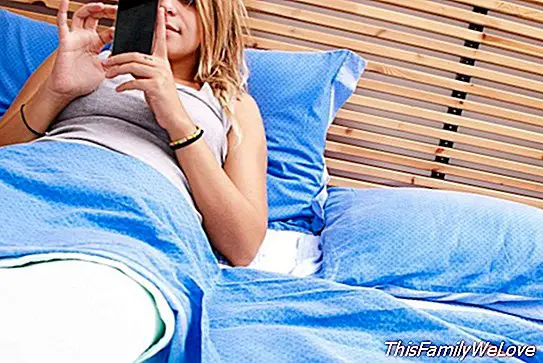More mobile screen, less sleep quality

The line that separates what is beneficial of what is harmful is sometimes transferred. A good example are smartphones, devices that although they help on a daily basis in different ways such as allowing their users to be connected in an emergency. However, it is sometimes forgotten that these devices must be used responsibly and that health problems may arise from their abuse.
A new study of University of California, San Francisco, published by Scientific America, reveals that the influence of the mobile screen on people affects their quality of dream. A greater number of hours in front of smartphones, worse quality in the rest of people.
Inhibition of melatonin
The team at the University of California started with the theory that blue screen of smartphones directly affected the production of melatonin, which is directly related to the quality of the dream. To discover the success or otherwise of this hypothesis, an application that measured the time these users used these devices was included in the mobile phones of the participants.
A total of 653 adults They participated in this study by including this application on their smartphones for 30 days in a row. Days during which this application registered every time one of these devices was unlocked and some eyes were in front of the device's screen.
In addition, these participants reported on the quality of their sleep and whether or not there was a family history or some type of disorder that could alter their quality of rest. Two informative sources with which it was tried to demonstrate if it was certain that the screen of the mobile affected in the hours that they slept this people.
More screen, less rest
The results showed that on average the participants used their smartphones 38.4 hours during these 30 days and a few 29 minutes in each day. Weighted data, since consumption was higher as they were younger and lower as age progressed.
As those responsible for the study predicted with their hypothesis, as the consumption of smartphones grew, more hard It was to fall asleep in the participants. At more time in front of the screens, more time was required by these people to be able to fall asleep and of course, when they took longer in this task, less rest had these subjects.
In addition those responsible for this study said that these data will serve to better define the relationship between smartphone use and sleep since they have been collected real data thanks to this application. The researchers said that users often do not count total hours because of embarrassment or because they are not aware of all the time they spend on these devices.
Damián Montero




